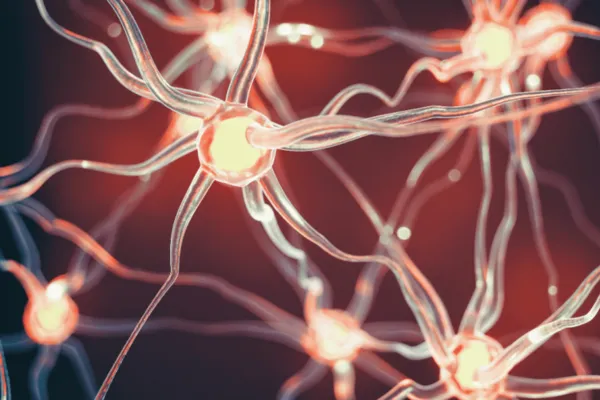Do you have a calling?
Are you looking for yourself?
Henosis is founded upon the idea that every human being in unique and has a purpose. You have aspects that make you so different to every other human on the planet, yet such deep similarities that show we're all the same.
Origin Story of Henosis
The Greek word henosis refers to the process of achieving a state of oneness or unity with the divine. This concept has been central to many mystical and philosophical traditions throughout history, particularly in ancient Greece.
The term henosis comes from the Greek word ἕνωσις, which means "union" or "merging." It was used by several ancient Greek philosophers, including Plotinus and Proclus, to describe the goal of mystical practice.
For these philosophers, the goal of mystical practice was to transcend the limitations of the physical world and achieve a direct experience of the divine.
This experience was seen as a merging or union with the divine, a state of consciousness in which the individual and the divine were no longer separate entities but were united as one.
In some mystical traditions, henosis was seen as a gradual process of spiritual development, in which the individual gradually purifies their mind and body and becomes more attuned to the divine. In others, it was seen as a sudden, spontaneous experience that could occur at any time.
The concept of henosis was also central to many ancient Greek religious practices, particularly in the mystery religions. These were secretive, initiatory cultures that focused on the direct experience of the divine through ritual practices, often involving ecstatic states of consciousness.
Henosis has also been an important concept in the history of Christianity, particularly in the Eastern Orthodox tradition. In this tradition, henosis is seen as the ultimate goal of spiritual practice, a state of union with God that is achieved through prayer, contemplation, and asceticism.

Overall, the concept of henosis is a complex and multifaceted one that has played a central role in many mystical and philosophical traditions throughout history. Whether seen as a gradual process of spiritual development or a sudden, spontaneous experience, it represents the human longing for a direct experience of the divine, and the recognition that this experience lies at the heart of our deepest aspirations and desires.

HENOSIS PURPOSE
Henosis was formed to hold space for the lost soul, questioning their current reality, and to provide alternative information and experiences that may serve as the launching pad for their new life.

HENOSIS VISION
We believe that all humans deserve to live a life of fulfillment and to participate in the raising of the vibrational frequency of earth to expand consciousness.

HENOSIS MISSION
Henosis assists with the shedding of our limiting beliefs, overcoming our emotional and energetic blocks and reprogramming harmful habits and biases. We develop educational information, events and activities to promote ancient wisdom, alternative medicines, new age science and holistic healing modalities to empower the individual to discover their own limitless possibilities and increase awareness.
What the greats say about Henosis over Millenia
Within the word henosis lies a powerful invitation to experience the unity and oneness that exists within and around us, to dissolve the illusion of separateness and awaken to the truth of our interconnectedness with all of life.
Plato
Henosis is the transcendence of the self, the merging of the individual with the divine, and the attainment of spiritual enlightenment.
Eckhart Tolle
The experience of henosis is a mystical journey, a quest for the ultimate truth and the ultimate reality.
Carl Jung
In the state of henosis, the individual ego dissolves into the infinite, and the soul merges with the divine.
Deepak Chopra
Henosis is the realisation that we are all interconnected, that we are all part of a greater whole, and that we are all one.
Alan Watts
In the state of henosis, the boundaries between self and other dissolve, and the individual becomes one with the universe and all that exists.
Sri Ramana Maharshi
Henosis is the state of being in which one transcends the limitations of the ego and realises the true nature of the self as part of the divine.
Buddha
Henosis is the ultimate liberation, the release from the bonds of the ego and the attainment of eternal bliss and peace.
Henosis
Henosis represents the journey of transcending individuality, merging with the divine, and awakening to the unity that connects all of existence.
Interested in changing your life?
Check out some of our free articles
HEALTH & WELLBEING

Why it is important to be conscious about what you put in your mouth?: Neurons & Gut Health
The human body is a complex organism that contains various organs, each with a unique set of functions. Recent research has shown that the gut and heart contain neurons, which can affect our mood, emotions, and behavior. This article will explore the implications of the number of neurons in the gut and heart for our health, particularly the importance of being conscious about what we put in our mouth.
Number of Neurons in the Gut
The gut contains approximately 100 million neurons, making it the second-largest concentration of neurons in the human body after the brain. These neurons form the enteric nervous system (ENS), which regulates the digestive process. The ENS can operate autonomously from the brain, but it is also connected to the central nervous system (CNS) via the vagus nerve.
The ENS plays a crucial role in regulating mood and behavior. Studies have shown that individuals with irritable bowel syndrome (IBS) often experience anxiety and depression, which suggests that the gut can influence emotional states. Therefore, being conscious about what we put in our mouth is important to maintain gut health and avoid digestive problems.
Number of Neurons in the Heart
The heart contains approximately 40,000 neurons, which are organized into a network called the intrinsic cardiac nervous system (ICNS). The ICNS regulates the heartbeat and is involved in the body's response to stress.
The presence of neurons in the heart has significant implications for human health. The ICNS has been linked to various cardiac diseases, including arrhythmia and heart failure. Stress can also lead to changes in heart rate and blood pressure. Therefore, being conscious about what we put in our mouth and avoiding stress can help maintain heart health.
Importance of Being Conscious About What You Put in Your Mouth
The gut-brain axis is the communication between the ENS and the CNS. The gut can influence emotional states, and the CNS can also influence the gut's functions. The food we eat can affect gut health, which, in turn, can affect mood and behavior. Eating a balanced diet rich in fruits, vegetables, whole grains, and lean proteins can help maintain gut health and reduce the risk of digestive problems.
The heart is also affected by the food we eat. A diet high in saturated and trans fats, added sugars, and salt can lead to high blood pressure, high cholesterol levels, and obesity, all of which increase the risk of heart disease. Eating a heart-healthy diet rich in fruits, vegetables, whole grains, and lean proteins can help maintain heart health and reduce the risk of heart disease.
Conclusion
The discovery of neurons in the gut and heart has challenged our traditional view of the nervous system and its role in human cognition. The gut-brain axis and the ICNS are both important in regulating bodily functions and mood. Being conscious about what we put in our mouth can help maintain gut and heart health, reduce the risk of digestive problems, and prevent heart disease. Therefore, it is important to pay attention to the food we eat and make healthy choices to promote overall health and well-being.
"The gut-brain axis in health and disease." Nature Reviews Gastroenterology & Hepatology. Mayer, E. A., Tillisch, K., & Gupta, A. (2015).
This review article discusses the role of the gut-brain axis in regulating bodily functions and mood. The authors note that stress can affect gut health and lead to digestive problems, while a healthy diet can promote gut health and reduce the risk of digestive problems.
"The intrinsic cardiac nervous system and its role in cardiac pacemaking and conduction." Journal of Interventional Cardiac Electrophysiology. Armour, J. A. (1997).
This article discusses the role of the intrinsic cardiac nervous system in regulating the heartbeat and response to stress. The author notes that a healthy diet and exercise can help maintain heart health and reduce the risk of cardiac disease.
"The impact of diet and lifestyle on gut microbiota and human health." Nutrients. Lee, Y. K., & Mazmanian, S. K. (2010).
This review article discusses the role of the gut microbiota in regulating bodily functions and the impact of diet and lifestyle on gut health. The authors note that a balanced diet rich in fruits, vegetables, whole grains, and lean proteins can help maintain gut health and reduce the risk of digestive problems.
"Diet, gut microbes, and the mechanisms of health and disease." Cell. Nicholson, J. K., Holmes, E., Kinross, J., Burcelin, R., Gibson, G., Jia, W., & Pettersson, S. (2012).
This review article discusses the role of the gut microbiota in regulating bodily functions and the impact of diet on gut health. The authors note that a balanced diet can help maintain gut health and reduce the risk of digestive problems.
"The effects of diet on the gut microbiome: a metagenomic analysis in humanized gnotobiotic mice." Science Translational Medicine. Turnbaugh, P. J., Ridaura, V. K., Faith, J. J., Rey, F. E., Knight, R., & Gordon, J. I. (2009).
This study investigated the effects of diet on the gut microbiome in mice. The authors found that a high-fat, high-sugar diet altered the gut microbiome and led to metabolic changes, while a low-fat, plant-based diet promoted gut health and reduced the risk of metabolic disease. These findings suggest that a healthy diet can promote gut health and overall health.
PSYCHOLOGY

Why it is important to be conscious about what you put in your mouth?: Neurons & Gut Health
The human body is a complex organism that contains various organs, each with a unique set of functions. Recent research has shown that the gut and heart contain neurons, which can affect our mood, emotions, and behavior. This article will explore the implications of the number of neurons in the gut and heart for our health, particularly the importance of being conscious about what we put in our mouth.
Number of Neurons in the Gut
The gut contains approximately 100 million neurons, making it the second-largest concentration of neurons in the human body after the brain. These neurons form the enteric nervous system (ENS), which regulates the digestive process. The ENS can operate autonomously from the brain, but it is also connected to the central nervous system (CNS) via the vagus nerve.
The ENS plays a crucial role in regulating mood and behavior. Studies have shown that individuals with irritable bowel syndrome (IBS) often experience anxiety and depression, which suggests that the gut can influence emotional states. Therefore, being conscious about what we put in our mouth is important to maintain gut health and avoid digestive problems.
Number of Neurons in the Heart
The heart contains approximately 40,000 neurons, which are organized into a network called the intrinsic cardiac nervous system (ICNS). The ICNS regulates the heartbeat and is involved in the body's response to stress.
The presence of neurons in the heart has significant implications for human health. The ICNS has been linked to various cardiac diseases, including arrhythmia and heart failure. Stress can also lead to changes in heart rate and blood pressure. Therefore, being conscious about what we put in our mouth and avoiding stress can help maintain heart health.
Importance of Being Conscious About What You Put in Your Mouth
The gut-brain axis is the communication between the ENS and the CNS. The gut can influence emotional states, and the CNS can also influence the gut's functions. The food we eat can affect gut health, which, in turn, can affect mood and behavior. Eating a balanced diet rich in fruits, vegetables, whole grains, and lean proteins can help maintain gut health and reduce the risk of digestive problems.
The heart is also affected by the food we eat. A diet high in saturated and trans fats, added sugars, and salt can lead to high blood pressure, high cholesterol levels, and obesity, all of which increase the risk of heart disease. Eating a heart-healthy diet rich in fruits, vegetables, whole grains, and lean proteins can help maintain heart health and reduce the risk of heart disease.
Conclusion
The discovery of neurons in the gut and heart has challenged our traditional view of the nervous system and its role in human cognition. The gut-brain axis and the ICNS are both important in regulating bodily functions and mood. Being conscious about what we put in our mouth can help maintain gut and heart health, reduce the risk of digestive problems, and prevent heart disease. Therefore, it is important to pay attention to the food we eat and make healthy choices to promote overall health and well-being.
"The gut-brain axis in health and disease." Nature Reviews Gastroenterology & Hepatology. Mayer, E. A., Tillisch, K., & Gupta, A. (2015).
This review article discusses the role of the gut-brain axis in regulating bodily functions and mood. The authors note that stress can affect gut health and lead to digestive problems, while a healthy diet can promote gut health and reduce the risk of digestive problems.
"The intrinsic cardiac nervous system and its role in cardiac pacemaking and conduction." Journal of Interventional Cardiac Electrophysiology. Armour, J. A. (1997).
This article discusses the role of the intrinsic cardiac nervous system in regulating the heartbeat and response to stress. The author notes that a healthy diet and exercise can help maintain heart health and reduce the risk of cardiac disease.
"The impact of diet and lifestyle on gut microbiota and human health." Nutrients. Lee, Y. K., & Mazmanian, S. K. (2010).
This review article discusses the role of the gut microbiota in regulating bodily functions and the impact of diet and lifestyle on gut health. The authors note that a balanced diet rich in fruits, vegetables, whole grains, and lean proteins can help maintain gut health and reduce the risk of digestive problems.
"Diet, gut microbes, and the mechanisms of health and disease." Cell. Nicholson, J. K., Holmes, E., Kinross, J., Burcelin, R., Gibson, G., Jia, W., & Pettersson, S. (2012).
This review article discusses the role of the gut microbiota in regulating bodily functions and the impact of diet on gut health. The authors note that a balanced diet can help maintain gut health and reduce the risk of digestive problems.
"The effects of diet on the gut microbiome: a metagenomic analysis in humanized gnotobiotic mice." Science Translational Medicine. Turnbaugh, P. J., Ridaura, V. K., Faith, J. J., Rey, F. E., Knight, R., & Gordon, J. I. (2009).
This study investigated the effects of diet on the gut microbiome in mice. The authors found that a high-fat, high-sugar diet altered the gut microbiome and led to metabolic changes, while a low-fat, plant-based diet promoted gut health and reduced the risk of metabolic disease. These findings suggest that a healthy diet can promote gut health and overall health.
HAPPINESS

Why it is important to be conscious about what you put in your mouth?: Neurons & Gut Health
The human body is a complex organism that contains various organs, each with a unique set of functions. Recent research has shown that the gut and heart contain neurons, which can affect our mood, emotions, and behavior. This article will explore the implications of the number of neurons in the gut and heart for our health, particularly the importance of being conscious about what we put in our mouth.
Number of Neurons in the Gut
The gut contains approximately 100 million neurons, making it the second-largest concentration of neurons in the human body after the brain. These neurons form the enteric nervous system (ENS), which regulates the digestive process. The ENS can operate autonomously from the brain, but it is also connected to the central nervous system (CNS) via the vagus nerve.
The ENS plays a crucial role in regulating mood and behavior. Studies have shown that individuals with irritable bowel syndrome (IBS) often experience anxiety and depression, which suggests that the gut can influence emotional states. Therefore, being conscious about what we put in our mouth is important to maintain gut health and avoid digestive problems.
Number of Neurons in the Heart
The heart contains approximately 40,000 neurons, which are organized into a network called the intrinsic cardiac nervous system (ICNS). The ICNS regulates the heartbeat and is involved in the body's response to stress.
The presence of neurons in the heart has significant implications for human health. The ICNS has been linked to various cardiac diseases, including arrhythmia and heart failure. Stress can also lead to changes in heart rate and blood pressure. Therefore, being conscious about what we put in our mouth and avoiding stress can help maintain heart health.
Importance of Being Conscious About What You Put in Your Mouth
The gut-brain axis is the communication between the ENS and the CNS. The gut can influence emotional states, and the CNS can also influence the gut's functions. The food we eat can affect gut health, which, in turn, can affect mood and behavior. Eating a balanced diet rich in fruits, vegetables, whole grains, and lean proteins can help maintain gut health and reduce the risk of digestive problems.
The heart is also affected by the food we eat. A diet high in saturated and trans fats, added sugars, and salt can lead to high blood pressure, high cholesterol levels, and obesity, all of which increase the risk of heart disease. Eating a heart-healthy diet rich in fruits, vegetables, whole grains, and lean proteins can help maintain heart health and reduce the risk of heart disease.
Conclusion
The discovery of neurons in the gut and heart has challenged our traditional view of the nervous system and its role in human cognition. The gut-brain axis and the ICNS are both important in regulating bodily functions and mood. Being conscious about what we put in our mouth can help maintain gut and heart health, reduce the risk of digestive problems, and prevent heart disease. Therefore, it is important to pay attention to the food we eat and make healthy choices to promote overall health and well-being.
"The gut-brain axis in health and disease." Nature Reviews Gastroenterology & Hepatology. Mayer, E. A., Tillisch, K., & Gupta, A. (2015).
This review article discusses the role of the gut-brain axis in regulating bodily functions and mood. The authors note that stress can affect gut health and lead to digestive problems, while a healthy diet can promote gut health and reduce the risk of digestive problems.
"The intrinsic cardiac nervous system and its role in cardiac pacemaking and conduction." Journal of Interventional Cardiac Electrophysiology. Armour, J. A. (1997).
This article discusses the role of the intrinsic cardiac nervous system in regulating the heartbeat and response to stress. The author notes that a healthy diet and exercise can help maintain heart health and reduce the risk of cardiac disease.
"The impact of diet and lifestyle on gut microbiota and human health." Nutrients. Lee, Y. K., & Mazmanian, S. K. (2010).
This review article discusses the role of the gut microbiota in regulating bodily functions and the impact of diet and lifestyle on gut health. The authors note that a balanced diet rich in fruits, vegetables, whole grains, and lean proteins can help maintain gut health and reduce the risk of digestive problems.
"Diet, gut microbes, and the mechanisms of health and disease." Cell. Nicholson, J. K., Holmes, E., Kinross, J., Burcelin, R., Gibson, G., Jia, W., & Pettersson, S. (2012).
This review article discusses the role of the gut microbiota in regulating bodily functions and the impact of diet on gut health. The authors note that a balanced diet can help maintain gut health and reduce the risk of digestive problems.
"The effects of diet on the gut microbiome: a metagenomic analysis in humanized gnotobiotic mice." Science Translational Medicine. Turnbaugh, P. J., Ridaura, V. K., Faith, J. J., Rey, F. E., Knight, R., & Gordon, J. I. (2009).
This study investigated the effects of diet on the gut microbiome in mice. The authors found that a high-fat, high-sugar diet altered the gut microbiome and led to metabolic changes, while a low-fat, plant-based diet promoted gut health and reduced the risk of metabolic disease. These findings suggest that a healthy diet can promote gut health and overall health.

